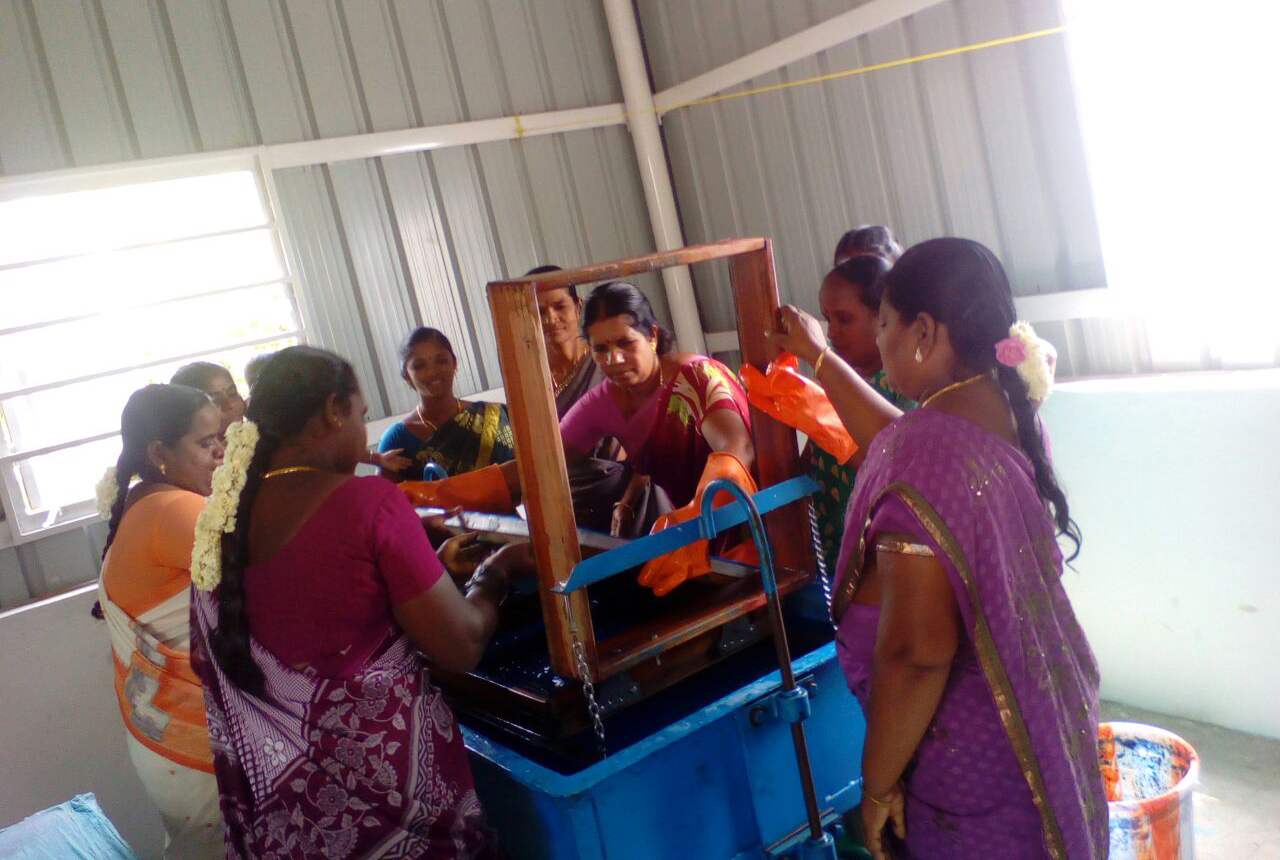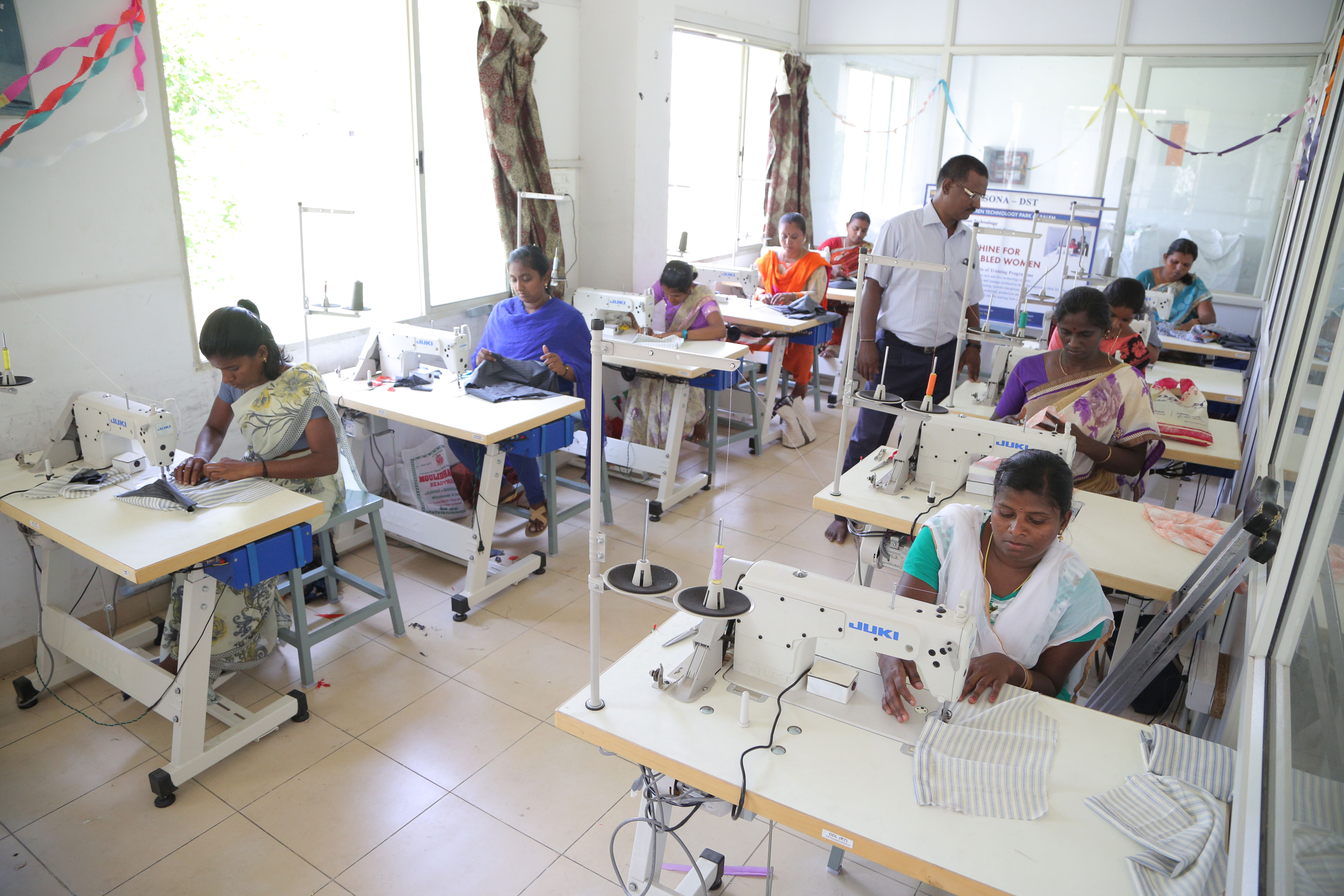

How Sona College’s indigenous solution of making paver blocks from industrial steel waste is helping rural women around Salem become independent
.jpg)
.jpg)
.jpg)
It was a visit from JSW Steel, Salem – among the largest steel manufacturers in India – urging experts at Sona College of Technology to find a solution to reuse the large amount of steel slag waste that triggered the idea of making paver blocks using it.
Chocko Valliappa, Vice Chairman, Sona Group of Institutions, also saw this as an opportunity to help women from nearby rural communities become self-reliant by providing them with the right tools and knowledge. He initiated the idea of setting a paver block making unit, as part of the Women Technology Park that was established to help women from rural areas become entrepreneurs by discovering new means of earning.
.jpg)
Ramalingam Malathy, Professor of Civil Engineering and Dean of R&D, Sona College discovered that instead of using the sand or stone chips as in the commercial paver blocks, steel slag can be used as an aggregate. Most commercial paver blocks use cement, water, stone chips and sand. Huge demand of paver blocks and such construction material has resulted in excessive sand mining with a significant environment impact – such as riverbed erosion, depletion of animal and plant ecosystem, weakening riverbanks, causing floods.
“Not only does the steel slag minimise the use of sand in manufacturing of paver blocks, thus saving the riverbeds, but are also almost 20 percent cheaper than the commercial paver blocks (in terms of material cost),” explains professor Malathy. While commercial paver blocks cost around Rs 11 per block, these steel slag blocks would cost Rs 9 only.
Salem being a major hub for steel manufacturing in the South of India, it made a strong case for the team at Sona College to set up a paver block making unit that could use the energy-optimized furnace (EOF) steel slag waste from the steel plants to make something useful. Once the unit was set up, the team at Sona College was faced with the most important part of the project – shortlisting women from villages around Salem who could be trained on the technology and motivated to don the entrepreneurial hat – thus providing jobs to other women at higher wages compared to what they made as a farm or a construction worker.
A total of 82 women from 40 villages were trained to operate these paver block making units. In addition, they learnt the nitty-gritty of the operations, laying the bricks, the size of the market and also how to market their paver blocks. As part of the project – of the 13 self-help groups formed for this project, 10 went on to become entrepreneurs, employing and training several others in the process. This speaks of the project’s success. The affinity with the Sona College facilitators surfaces when these women fondly speak of their newly acquired skills and how dramatically it changed their lives.
“I was earlier taking up random jobs as a daily wage worker and used to earn a meagre amount of Rs 300 but I am immensely thankful to the college for these technical skills,” shared 42-year-old Shanthi*, one of the women. Shanthi’s confidence has grown and she has gone ahead to make a team of six women – trained from the same program and is happy to get orders for lakhs of paver blocks to meet the urban demand. Today, all the women she employs earn almost double of what she herself was earning while working as a daily wage worker.
The steel slag paver block project has immense potential – while Salem alone produces almost 150 tons of steel slag waste, the paver block unit at Sona College has a capacity of producing around 2,000 paver blocks per day using this waste. These blocks cost just Rs 9 as compared to Rs 11 per commercial paver block and it gives a value addition of Rs 7,500 per day.
Today, JSW Steel is using a bulk of its steel slag in making such paver blocks using their own channels for internal consumption.
The project was initiated with a grant under the Technology Development Programme of the Department of Science & Technology, Government of India in 2017, and was recognised as one of the most successful projects in 2022. It operated under the Women Technology Park initiative of Sona College of Technology and now continues through the Valliappa Foundation.
*Name changed.
.jpg)
Solar-Powered Food Dryer Brings New Ray of Hope for Farmers in Rural Salem

New Silver-Plating Tech Enables Salem Artisans to Expand Their Horizons

Differently-Abled Women Earn Respect and Living by Using Custom Sewing Machine
.jpg)
When Waste Paper Created Wealth and Inspired Entrepreneurship in Women